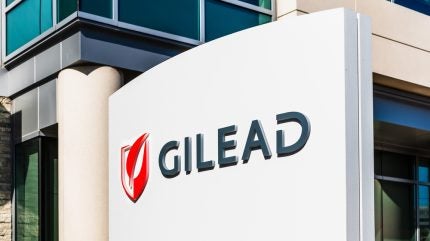
The World Health Organization (WHO) is recommending the use of Gilead Sciences’ newly approved injectable version of lenacapavir to fight HIV, as separate research forecasts a rise in cases in Africa amid foreign aid cuts.
Announced at the 13th International AIDS Society Conference (IAS 2025) on HIV Science, in Kigali, Rwanda, the policy sees injectable lenacapavir – known under the brand name Yeztugo – added to the world’s arsenal of tools endorsed by the WHO to curb HIV cases and end the epidemic.

Discover B2B Marketing That Performs
Combine business intelligence and editorial excellence to reach engaged professionals across 36 leading media platforms.
Lenacapavir was first approved in 2022 under the brand name Sunlenca for the treatment of HIV infection in adults with multi-drug resistance. An injectable version of lenacapavir given twice a year was approved by the US Food and Drug Administration (FDA) last month, licensed as a pre-exposure prophylaxis (PrEP) option for HIV prevention.
The approval of Yeztugo was hailed as a historical breakthrough by HIV experts and charities. The Elton John AIDS Foundation commented that the drug “will fundamentally bend the curve of new HIV infections”.
The WHO says that the vaccine offers a highly effective, long-acting alternative to daily oral pills and other shorter-acting options. Data reported by Gilead from a Phase III trial showed that Yeztugo led to a 96% reduction in the risk of acquiring HIV. The more accessible dosing will also improve adherence and stigma, meaning more people are likely to take the drug.
WHO Director-General Dr Tedros Adhanom Ghebreyesus said: “While an HIV vaccine remains elusive, lenacapavir is the next best thing: a long-acting antiretroviral shown in trials to prevent almost all HIV infections among those at risk.

US Tariffs are shifting - will you react or anticipate?
Don’t let policy changes catch you off guard. Stay proactive with real-time data and expert analysis.
By GlobalData“The launch of WHO’s new guidelines, alongside the FDA’s recent approval, marks a critical step forward in expanding access to this powerful tool. WHO is committed to working with countries and partners to ensure this innovation reaches communities as quickly and safely as possible.”
GlobalData analysts stated that the approval of Yeztugo is a “momentous step in improving PrEP options available for people vulnerable to contracting HIV”.
However, a potential barrier to its global uptake could be cost, with the US list price for Yeztugo sitting at $28,218 per year for each patient. For comparison, GSK’s Apretude – the only other injectable PrEP therapy available in the US – costs $22,000 per year, though this is given monthly. The amount of foreign aid that supports Yeztugo’s rollout in Africa will therefore impact its availability.
Funding cuts impact HIV prevalence
Despite scientific breakthroughs such as Yeztugo, the WHO’s recommendation comes at a time of concern from public health experts about the impact of foreign aid cuts on HIV cases. Research suggests that cuts in funding made by US President Donald Trump are set to increase transmission rates in Africa. Clinical trial operations, diagnostic testing, and drug availability have already been impacted.
The US President’s Emergency Plan for AIDS Relief (PEPFAR), which invested significant amounts of money into HIV prevention and treatment last year, has had its funding pulled by the Trump administration.
A report by UNAIDS predicts that six million new HIV infections and four million AIDS-related deaths could occur between 2025 and 2029 if US-supported HIV treatment and prevention services collapse.
The WHO itself has been searching for funding recently, after Trump said the US – historically the largest contributor to the organisation – would stop sending money. Member states of the organisation agreed earlier this year to pay 20% more in membership fees to stopgap the US funding shortfall, though WHO’s overall budget for 2026-2027 will be lower than that for 2024-2025.




